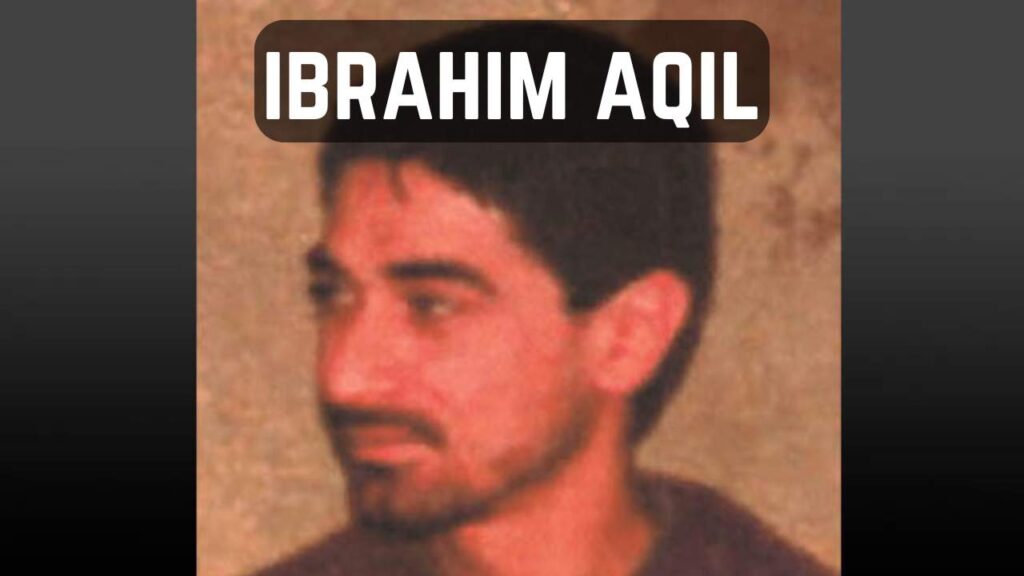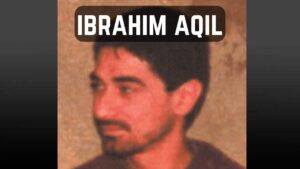Who is Ibrahim Aqil : Senior Hezbollah Commander

ibrahim aqil
Ibrahim Aqil, also known as Tahsin, was a central figure in Hezbollah’s military hierarchy, playing a pivotal role in shaping the group’s militant operations over the years. His influence on the organization’s strategy and leadership continues to resonate, making him one of Hezbollah’s most infamous commanders. This article will explore his background, key operations, and eventual demise while offering insight into his enduring legacy.
Early Involvement in Hezbollah’s Militant Activities
Ibrahim Aqil emerged in the 1980s as a core member of Hezbollah’s military wing. Known for his strategic mind and ruthlessness, Aqil quickly rose through the ranks to become part of the organization’s Jihad Council, Hezbollah’s highest military body. This council oversees all major military decisions and strategies, positioning Aqil at the heart of the group’s operations.
During this time, Hezbollah was heavily involved in anti-Western and anti-Israeli operations, and Aqil played a critical role in orchestrating some of the most devastating attacks.

Notorious Attacks: U.S. Embassy and Marine Barracks Bombings
Aqil was a principal figure in the Islamic Jihad Organization, a Hezbollah cell responsible for numerous high-profile attacks. One of the most significant events attributed to Aqil and his unit was the bombing of the U.S. Embassy in Beirut on April 18, 1983. The explosion killed 63 people, including 17 Americans, and signaled the growing threat Hezbollah posed to U.S. interests in the Middle East.
Later that year, Aqil was also linked to the bombing of the U.S. Marine barracks in Beirut on October 23, 1983. This attack killed 241 U.S. service personnel and 58 French soldiers, marking it as one of the deadliest attacks against Western military forces in the region. These bombings significantly shaped U.S. foreign policy in Lebanon and solidified Hezbollah’s reputation as a formidable force.
Kidnappings and Terror Operations
Beyond bombings, Ibrahim Aqil was deeply involved in Hezbollah’s kidnapping campaigns during the 1980s. He played a leading role in the abduction of Western officials, including Americans and Germans, using hostages as leverage in political negotiations. These tactics placed Hezbollah on the global stage as a key player in Middle Eastern geopolitics, with Aqil’s name frequently linked to these operations.
The “Plan to Conquer the Galilee”
One of Aqil’s most ambitious military strategies was the “Plan to Conquer the Galilee,” a blueprint for Hezbollah to infiltrate Israeli territory and seize northern communities in the event of a large-scale conflict. Aqil, working closely with Hezbollah’s elite Radwan Force, envisioned a scenario where the group could destabilize northern Israel, taking advantage of the terrain and launching coordinated ground attacks.
Though this plan never materialized, it showcased Aqil’s long-term strategic thinking. The blueprint aimed to mirror tactics used by other militant groups, such as Hamas, and demonstrated Hezbollah’s intent to expand its reach and capabilities.
Related: 9/11 Attack Hidden Truth You Don’t Know About
Global Designation and $7 Million Reward
Due to his extensive involvement in global terror operations, Ibrahim Aqil was designated as a Specially Designated Global Terrorist by the U.S. State Department in 2019. The department placed a $7 million reward on his head, making him one of the most wanted men in the region. This designation underscored his role not just in Lebanese affairs but in broader geopolitical terror activities aimed at destabilizing Western interests in the Middle East.
Death in an Israeli Airstrike
On September 20, 2024, Ibrahim Aqil’s career came to a sudden end during an Israeli airstrike in Beirut. The attack targeted Hezbollah’s military leadership, including Aqil, who had served as the head of Hezbollah’s Operations Division since 2004. His death, along with that of other high-ranking Hezbollah commanders, was part of Israel’s ongoing efforts to dismantle Hezbollah’s military infrastructure.
Aqil’s Enduring Legacy
Although Aqil is no longer active, his legacy continues to influence Hezbollah’s military strategy. His work in structuring Hezbollah’s operations and planning large-scale attacks has left a lasting impact on the organization. Hezbollah’s Radwan Force, which he led, remains one of the group’s most elite units, and the strategies he helped develop are still relevant in the organization’s current approach to regional conflicts.
Conclusion
Ibrahim Aqil was more than just a military commander; he was a strategist whose decisions had profound effects on Hezbollah’s rise to prominence. From his involvement in deadly bombings to the long-term planning of military incursions into Israeli territory, Aqil’s name is synonymous with Hezbollah’s militant operations. His death marked the end of an era for the organization, but his influence will likely continue to shape its activities for years to come.







